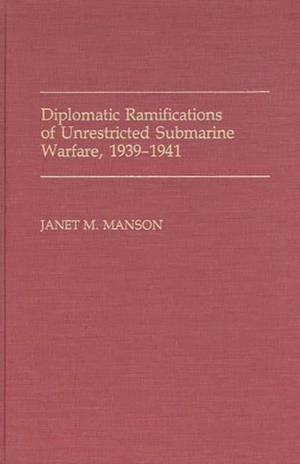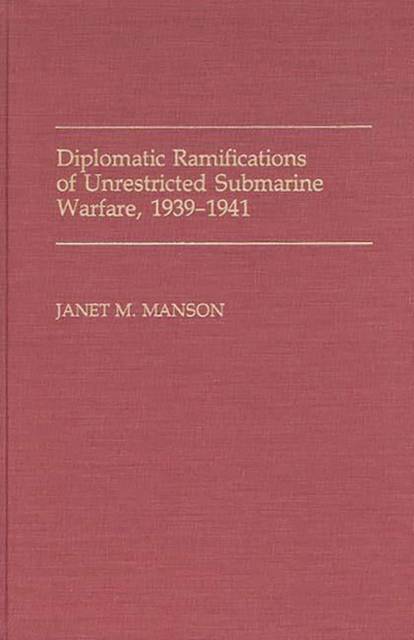
- Retrait gratuit dans votre magasin Club
- 7.000.000 titres dans notre catalogue
- Payer en toute sécurité
- Toujours un magasin près de chez vous
- Retrait gratuit dans votre magasin Club
- 7.000.0000 titres dans notre catalogue
- Payer en toute sécurité
- Toujours un magasin près de chez vous
Diplomatic Ramifications of Unrestricted Submarine Warfare, 1939-1941
Janet M MansonDescription
In its decision of 7 December 1941 to adopt a policy of unrestricted submarine warfare--the destruction of all vessels entering a designated war zone--the United States not only dramatically reversed its previous foreign policy position of defending freedom of the seas but in doing so adopted a policy that had been one of the chief provocations for U.S. entry into World War I against Germany. Janet M. Manson contends that this decision also proved to be a watershed in U.S. foreign policy because it provided the precedent and rationale for using advanced weapons technology against noncombatants. Incorporating previously unavailable historical materials that have only recently been released through U.S. archives and compiling much information available only in archives and libraries in West Germany, this groundbreaking study provides multinational perspectives based on multiarchival research.
Manson carefully considers the complex historical, political, economic, legal, and military rationale for the decision. Detailed examinations of the discourse on submarine warfare among various governmental departments and sub-departments provide not only a more accurate account of the decisionmaking process involved in these events but also reveal the crucial influence of World War I precedent on World War II practice: The U.S. relied heavily on German submarine practice in both world wars in reaching its decision to implement unrestricted submarine warfare. Manson argues that although U.S. and German systems of government and foreign policy objectives were completely different, a similar rationale prompted their adoption of unrestricted submarine warfare. Seven chapters range chronologically from Germany's use of unrestricted submarine warfare during World War I to the American decision to adopt that policy in 1941. The final chapter identifies the implications and consequences of the decisions. This is the only scholarly work to provide detailed examinations of the decisions and the decisionmaking process from German and American perspectives. It will be standard resource for scholars and other readers investigating naval history, diplomacy, warfare, and World War II history.Spécifications
Parties prenantes
- Auteur(s) :
- Editeur:
Contenu
- Nombre de pages :
- 232
- Langue:
- Anglais
- Collection :
Caractéristiques
- EAN:
- 9780313268946
- Date de parution :
- 26-11-90
- Format:
- Livre relié
- Format numérique:
- Genaaid
- Dimensions :
- 163 mm x 244 mm
- Poids :
- 548 g

Les avis
Nous publions uniquement les avis qui respectent les conditions requises. Consultez nos conditions pour les avis.






